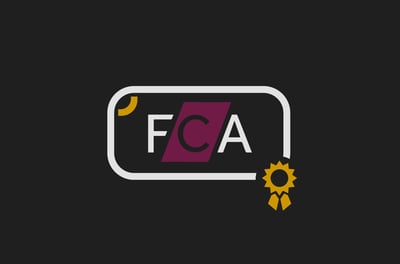Table Of Contents
- The FCA in Brief
- Filing A Complaint Against A FOREX Broker
- Minimum Capital Requirements for FCA FOREX Brokers
- Ethical Brokerage Practices for FOREX Brokers
- 1. Segregation of client funds
- 2. Reporting and auditing
- 3. Creating an efficient management structure
- 4. Risk disclosure
- 5. Customer-centric services
- 6. FOREX leverage
- FCA Confirms Permanent Restrictions on Sale of CFDs and CFD-like Options
- Who is Arincen and What Are Our Services?
- Conclusion
FCA Regulation Guide
Undoubtedly, one of the most important things to take into account when entering the FOREX market is to never underestimate the importance of regulatory bodies. It is easy to see why this is true. FOREX regulatory bodies are primarily responsible for establishing FOREX operational and execution standards by, among other things, safe keeping of your investments. You can know for certain that as a “guardian” of your money, FOREX brokers won’t be tampering with your capital outlay. In what follows, we will review the UK’s Financial Conduct Authority (FCA), considered by many as a leader in the field and one of the most coveted licenses in the industry. The name carries a certain reputation and credibility for all financial service providers. This is because the FCA is known for its stringent laws and regulations that ensure transparency, security, and fairness in all dealings.
The FCA in Brief
While the FCA is the financial regulatory body for the UK, it operates independently of the British government (only reporting to parliament) and is financed by fees collected from members of the financial services industry. The FCA regulates financial firms providing services to consumers and maintains the integrity and transparency of the financial markets in the UK. It makes sense then, that knowing the identity of the best FCA regulated brokers is a powerful tool for you as a trader.
Each broker domiciled in the UK should be licensed by the FCA. Details of their regulatory status should be easily accessible on FOREX companies’ websites, with each carrying a register number. In cases where a company claims the FCA licenses it, but where you have doubts, you can easily verify this information by visiting the FCA broker register here. If you find results, then the company’s claims for licensing are legitimate. Otherwise, the company in question is not licensed by the FCA and should be avoided at all times.

Filing A Complaint Against A FOREX Broker
In the rare case where you believe your FOREX broker is a scam broker, you can file an official complaint with the FCA by visiting the following link https://www.fca.org.uk/consumers/how-complain.
It is very unlikely that an FCA-licensed company would dare meddle with your account for fear of the repercussions that may result. These include canceling the company’s FCA license and/or closing it down altogether.
Minimum Capital Requirements for FCA FOREX Brokers
To become an FCA-regulated FOREX broker, a firm must first fulfill the following minimum capital requirements, which have effectively been put in place to ensure that a firm is able to meet its financial obligations.
There are three main types of categories in which firms can get FCA FOREX licenses:
Dealer license: Also termed as a “Market Maker,” the minimum capital requirement to get a dealer license is €730,000. This license is unique in that it allows brokers to run a B-Book, as the client’s counterparty.
Intermediary license: With a minimum capital requirement of €125,000, this so-called “matched principle” license is designed particularly for Straight Through Processing (STP) brokers, as well as for those offering the A-Book broker model.
Restricted broker license: This is the simplest license type, with the minimum requirement of €50,000. It does not allow brokers to hold client funds, but only to market and sell financial products.
It is noteworthy that both dealer and intermediary licenses allow firms to let clients invest in FOREX Contract for Differences (CFD). Beginning on April 1, 2019, the UK’s Financial Services Compensation Scheme (FSCS) increased the compensation limit for financial firms declaring bankruptcy from the earlier level of £50,000 to £85,000. This was meant to ensure that firms that had gone bust could reimburse their clients without fail. This and other rules were established to shore up the financial confidence of UK consumers.
Ethical Brokerage Practices for FOREX Brokers
Licensing requirements aside, the UK’s FCA continuously inspects the code of conduct of all its regulated brokerages, with the aim of detailing efficient business practices, as will be discussed below.
1. Segregation of client funds
With regard to client deposits, these must be maintained in separate bank accounts, without granting the brokerage firm the ability to use these funds. Further, these accounts have to be held with reputable banks and registered with the FCA.
2. Reporting and auditing
FCA-regulated FOREX brokers must provide clients with monthly account statements and position records. Moreover, they need to supply the FCA with the following information:
Capital adequacy requirements, calculated on a daily basis.
Audited financial statements, produced annually or quarterly.
Monthly financial statements, to be prepared according to best-practice accounting principles.
The objective behind all these “precautionary” measures is to place a higher priority on brokerage firms maintaining ethical financial practices while minimizing the risks of fund misappropriation.
3. Creating an efficient management structure
According to the FCA, FOREX brokers must employ qualified professionals, ensuring that senior management members are capable of making informed critical decisions. Other important information FOREX firms need to disclose to the FCA include:
A proper business plan.
Anti-Money Laundering (AML)/Counter-Terrorist Financing (CTF) manuals.
Know Your Customer (KYC) information of directors, beneficial owners, affiliates and controllers.
Proof of professional indemnity insurance.
4. Risk disclosure
The FCA attaches high priority to FOREX brokers making client education a key priority. This can be done in two ways. One, customer service representatives need to be efficient and able to handle queries and have training for operating trade terminals. Two, the risks traders face from FOREX trading have to be properly conveyed to the consumer, clearly and in all marketing materials. Indeed, the EU’s MiFID II guidelines, released by the European Securities and Markets Authority (ESMA) in 2018, make it a prerequisite for all brokers to have compulsory risk disclosure clauses and uniform information on all marketing and branding materials.
5. Customer-centric services
Within its strict guidelines, any FCA-regulated FOREX broker cannot resort to manipulative trade practices, such as entering into positions “against” their clients. At the same time, FCA-regulated FOREX brokers are banned from making improbable assurances. Likewise, they cannot advise clients to take adverse and risky trade decisions. Not adhering to these guidelines represents a violation of the rules and can lead to heavy penalties. While certain telephonic and electronic communications between clients and employees can be recorded for training purposes, this can only be done after clients have been properly notified. In sum, FCA-regulated FOREX brokers cannot only focus on how to just make profits. Rather, they should also provide customer-centric services, catering to their traders’ security and other needs.
6. FOREX leverage
To halt firms from offering disproportionally high leverage to consumers, which can result in a high number of customers losing money, the UK’s FCA has imposed leverage limits on financial instruments. This means the days FOREX brokers were able to offer crazy leverage limits of 1:1000 on FOREX trading instruments are all but over.
FCA Confirms Permanent Restrictions on Sale of CFDs and CFD-like Options
The effective regulatory changes discussed in this section demonstrate how strongly the FCA can guide the activities of FOREX brokers. In July 2019, the FCA issued a statement that it intended to impose temporary restrictions on the sale of CFDs and CFD-like options permanently for retail investors. Brokers would be expected to cap the leverage on CFD trading between 1:30 and 1:2. If a trader’s position fell below 50% of the margin required to maintain their open positions in their CFD account, the broker would close the position immediately.
More recently, the FCA has issued a rule that forbids the offering of monetary benefits to clients in return for trading. In addition, standardized risk warnings vis-à-vis the percentage of retail customers who lose money from trading CFDs have to be provided to all clients. All firms in the European Economic Area (EEA), with access to UK market clients, must abide by these rules and regulations.
Recommended Brokers
Who is Arincen and What Are Our Services?
Put simply, Arincen is a social networking platform that brings together traders and experts to exchange expertise and ideas. Collectively, we evaluate the best FOREX companies in the world while offering a comprehensive suite of services and tools, all in one place, either via a personal computer or a mobile app. Arincen provides a wide range of services, such as:
Live FOREX, stocks, commodities, indices, and crytpocurrency rates.
The latest in FOREX signals.
An online trading academy.
An up-to-date economic calendar.
The platform is so rich that you can create your own private portfolio of traders and experts you like and follow their recommendations and investment sentiments.
Further, thanks to Arincen, users can keep an eye on market-price developments, as well as the latest news. Users can also benefit from the network’s educational courses, to say nothing of the exciting webinars – all done in a modern and fast-paced work environment. Get everything you need in one place. Arincen: We Meet to Simplify the Trading World.

Conclusion
The FCA, as the UK’s financial sector watchdog, has one of the most comprehensive regulatory structures for financial service providers. At the heart of its objectives is the need to ensure that people do not invest in products that are unsuitable for them. In cases where a FOREX brokerage firm does not follow the aforementioned guidelines, it can endure significant penalties or even be banned from operation for life. An FCA-regulated FOREX broker will, therefore, always ensure complete transparency and professionalism in its transactions with consumers.






